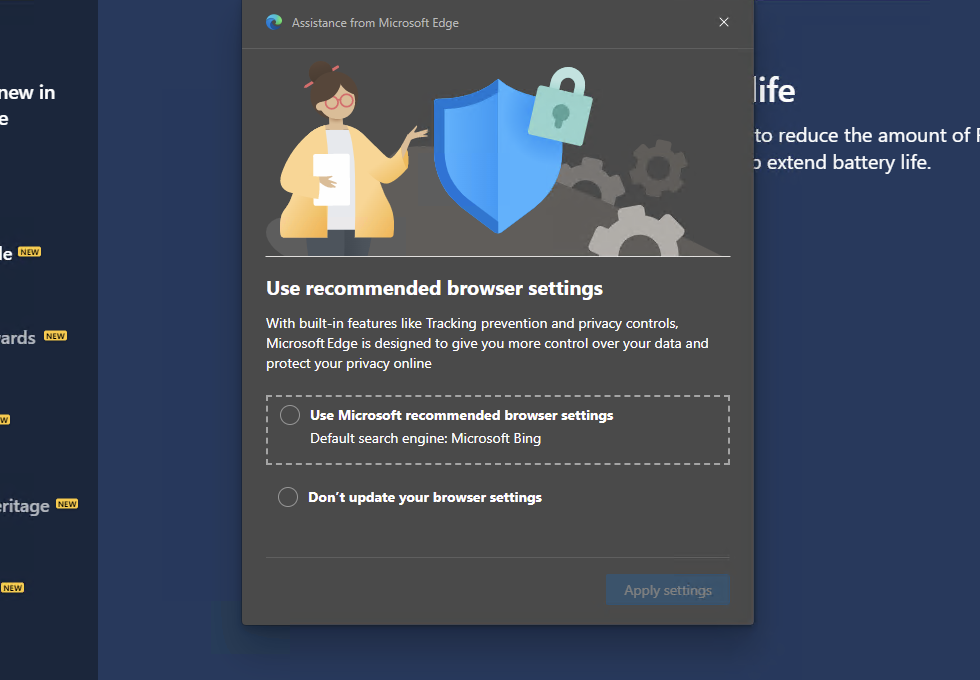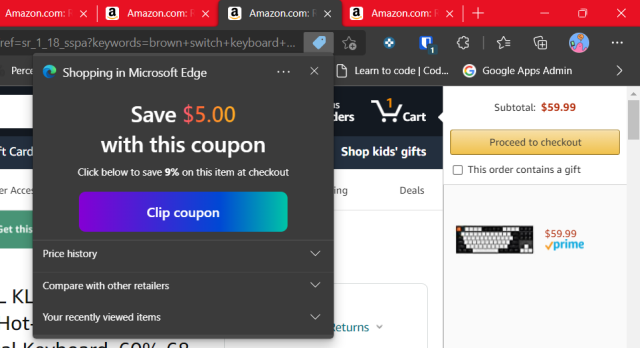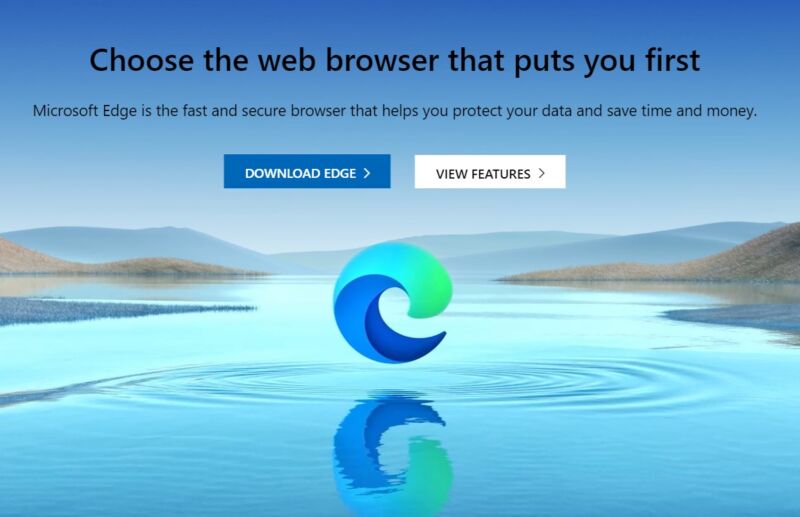I've been a Microsoft Edge user for a little over two years now, starting right around when the first macOS preview version was released. As with many decisions, I arrived at it using a combination of evidence-based reasoning (it works on all the platforms I use, it retains the speed and compatibility of the Chromium engine, its memory and battery usage and privacy controls seemed at least marginally better than Chrome's) and gut feelings that felt right to me regardless of whether they were factually true (that giving more personal data to Microsoft bothers me less than giving it to Google and that a big company's browser would be supported better in the long run than smaller, less-used browsers like Brave or Opera).
I've mostly been happy living on the Edge since I switched, and I certainly don't miss Chrome. But in the last few months, I've been progressively more annoyed by some of the "value-add" features Microsoft has tacked on to the browser and by the way Microsoft pushes Edge on people who use Windows (and Bing on people who use Edge). This annoyance has come to a head with Microsoft's addition of a buy-now-pay-later service called Zip to the newest version of Edge. This addition seems superfluous at best and predatory at worst, and it has spawned a backlash among users, Microsoft-adjacent tech media, and IT professionals.

I don't like the Zip integration and I don't plan to use it, but I wouldn't be so annoyed by it if it weren't part of a pattern that has emerged (or, at least, become more obvious) in the last year or so. The price comparison and coupon features that Microsoft added a year or so ago generate a huge amount of automatic on-by-default pop-ups, and when you disable those pop-ups or turn the features off entirely, they don't sync to your other PCs along with your bookmarks and other settings.
Windows has also continued using irritating full-screen messages that ask you to switch to Edge if you use another browser after some operating system and browser updates and asking you to use Bing within Edge if you've changed your default search engine (and many, many years in, Bing remains a worst-of-both-worlds search engine, with less accuracy and utility than Google but none of the privacy benefits of DuckDuckGo). Microsoft has made switching browsers ever so slightly more annoying in Windows 11, and the company is disabling workarounds that have been used to circumvent Edge's and Bing's deep integration into Windows.

I understand the need to keep adding new features to Edge over time. This is the plight of all Chromium-based browsers—you need to distinguish yourself from Chrome without affecting the compatibility of the underlying Chromium engine or the support for Chrome extensions, and stacking new features and services on top of the browser is the easiest way to do that. I'm also not totally against Microsoft reminding people that Edge exists and asking people to switch the first time they set up a new Windows PC; all browsers include some kind of pop-up about changing your default browser settings, and Edge is a lot more usable and competitive than it was back in the early days of Windows 10 when Microsoft was still trying to use its own rendering engine.
But the shopping and payment add-ins feel like a bridge too far. It's one thing to offer these features as optional add-ins, or as off-by-default features that you can opt in to when you first install the browser or when you install a major update. It's another to offer them automatically, everywhere, to everyone, regardless of whether they've turned those features off on another computer.
And the incessant reminders to switch to Edge and to use Bing, even when you are already choosing to use Edge in the first place, signals a fundamental lack of respect for the user's preferences and their ability to make their own decisions. When you switch from Safari in macOS or iOS, Apple doesn't throw pop-ups at you begging you not to switch or show you a full-screen message trying to get you to switch back to Google's search engine when you install a routine operating system update. The financial considerations are different—Apple doesn't have its own search engine that it's trying to monetize, so the company couldn't care less about what software you're running as long as you're doing it on Apple's hardware—but that doesn't make it right to hassle people about their browser preferences once they've made them.
I still think Edge is a good browser. I'm not ready to pack up all my bookmarks and switch browsers again just yet. But the kinds of heavy-handed tactics Microsoft is using to promote Edge and the kinds of features the company is adding do make it more difficult to recommend. Microsoft ought to reconsider the kinds of features it adds to Edge and how it chooses to promote and enable them, and the company needs to trust that Edge's market share will increase over time because of the browser's merits, not because Windows pushed users into it.



3175x175(CURRENT).thumb.jpg.b05acc060982b36f5891ba728e6d953c.jpg)


Recommended Comments
Join the conversation
You can post now and register later. If you have an account, sign in now to post with your account.
Note: Your post will require moderator approval before it will be visible.